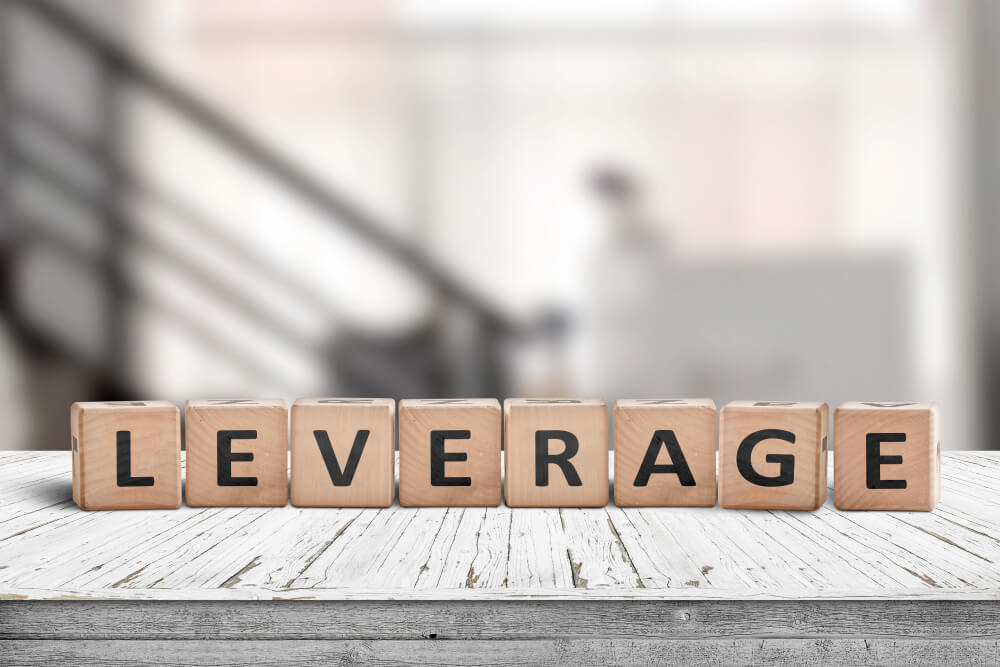Leverage for Beginners: How to Use It Effectively
September 16, 2020

There is a lot of talk about financial leverage. After all, it is often taken into consideration by less transparent brokers to push beginners and aspiring traders to open an account. In fact, it is often presented as a tool that allows you to "make money" easily and quickly. The reality is obviously quite different, although there is indeed a (subtle) kernel of truth.
We will discuss this in this article, analyzing the issue from a beginner's point of view. We will also provide advice for inexperienced users on how to use financial leverage safely without exposing themselves to serious or irreversible risks.
A definition of financial leverage
First of all, it is necessary to provide a clear and exhaustive definition of financial leverage. The term financial leverage refers to the tool that allows you to fictitiously increase exposure when making a trade. Specifically, it allows you to multiply the potential gain but also the potential loss.
For example, if you are trading with a financial leverage of 1:100, and you invest 100 euros, in the case of a gain of 2%, you will not pocket 2 euros, but rather 200.
Obviously, as already mentioned, this also applies to losses.
Financial leverage is a tool made available more or less by all brokers and financial intermediaries. However, in recent times, it has been heavily regulated, also due to the many risks to which it exposes. The recently enacted rules, not by chance, are intended to protect investors in general and non-professional ones in particular.
The objective risks of financial leverage
But what are the risks for those using financial leverage? In the previous paragraph, in a sense, we answered this question. It is certainly true that thanks to leverage, gains are multiplied. However, it is equally true that account losses are also multiplied. After all, we are talking about a tool that multiplies the "effects" of investments, going well beyond the real exposure and the real capital invested.
The greatest objective risk of a too casual use of financial leverage, therefore, consists exactly in the rapid loss of capital, which in some cases can reach unsustainable levels and lead to irreversible consequences.
Again, let's imagine a real investment of 100 euros conducted using a financial leverage of 1:100. If the loss is 2%, the trader leaves on the table an amount even higher than the real capital invested.
What beginners risk in particular
Let's be clear, financial leverage is not a tool to be demonized. If used with prudence and knowledge, it really allows you to speed up capital increase. However, it is impossible to ignore the objective risks that we presented in the previous paragraph.
Beginners, then, should pay even greater attention, as, precisely by virtue of their inexperience, they are subject to even greater risks.
First of all, those who have just started practicing trading suffer losses more than those who, on the other hand, have been practicing this activity for some time. The reason is simple: they have less capital available, so each loss has an even greater impact.
Consequently, the losses generated as a result of an improper use of financial leverage have a radical impact on the beginner's economic condition. Hence, the need to "take it easy".
There is also a more subtle risk, which many do not take into consideration but which impacts in a possibly even heavier way on the beginner's hopes of success. We are talking about a risk that is essentially psychological, and which concerns behaviors and the way in which the individual re-elaborates negative events.
Experienced traders are able to manage defeat more effectively than beginners. Simply put, they have a certain experience also from this point of view.
However, it is not uncommon for a beginner to react badly to a failed trade, becoming prey to negative feelings, which in the best case push him to frenetically seek a rematch. Now, if it is a beginner trader who experiences this emotional condition and has the possibility to use a very high financial leverage, then disaster is just around the corner: he will have no scruples about using it, and will expose himself to an even greater risk. From there to the complete loss of capital, it is a very short step.
Some advice
So, how should a beginner behave? Should he definitively give up using financial leverage? Of course, if he managed to do it solely with his own strength, the beginner trader would still achieve a goal to be proud of.
However, it is not always necessary to throw the baby out with all the bathwater. After all, financial leverage is simply a tool, and as much as it can be considered "double-edged", it still poses opportunities. The important thing is to try to exploit them while always maintaining a prudent attitude.
In the case of the beginner, this means implementing rather stringent Money Management actions, which allow him to operate in complete safety, and to preserve capital even in the event that the worst hypothesis comes true. The ultimate goal is to avoid incurring irreversible losses, which in the short or medium term undermine the economic ability to practice trading.
As for the financial leverage itself, beginners should still "take it easy" with the so-called leverage ratios. Very simply, they should not go beyond the 1:20 leverage (which poses a multiplier of 20). It represents a good compromise, also because it is lower, but not by much, than what is suggested by the current European rules. Certainly, they should avoid the 1:100, 1:200 and so on leverages proposed by some brokers based outside the European Union.




